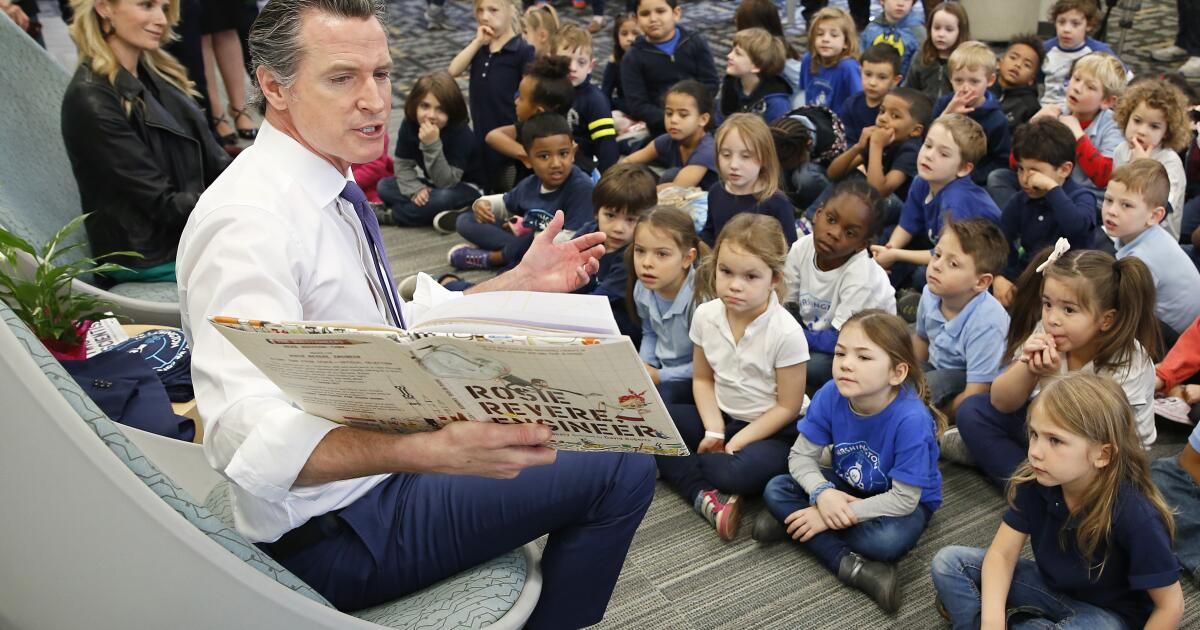To the editor: Education professor Allison Briceño fears that overemphasis on foundational skills like phonics takes time away from writing, favors children who are already advantaged, and ignores the needs of students who are learning English. These comments illustrate a misunderstanding of the science of reading.
The science of reading consists of both foundational skills and language skills. Developing background knowledge, vocabulary and familiarity with literature is crucial and is always incorporated. But it's not everything.
Currently, fundamental skills in teaching reading are downplayed and our students have been paying the price. We don't send a child to a pool or a piano recital without lessons. Do those lessons kill the pleasure of swimming or listening to music?
How can you be a competent reader if you can't decipher the words? Teaching foundational skills prepares students to love reading. As long as teachers ignore this, they will continue to produce teachers who are not prepared to effectively teach their students to read.
Maria Miller, Laguna Niguel
The writer has a doctorate in education.
..
To the editor: Briceño's opinion piece is the most sensible article I have read recently on literacy.
Part of my reading instruction when I was very young included an introduction to simple phonics. But that was just the beginning, because “reading” is not simply relating sounds to written symbols.
Calling phonics the “science of reading” is like calling the ability to name body parts the “science of biology.” Legislating it as the primary goal of primary education is an absurd waste of the Legislature's time and taxpayers' money.
As Briceño says, it is an “ideological slogan” rather than a scientific approach to teaching students how to understand what they read.
By the way, I have a master's degree in education, with a specialization in teaching reading to adults. I have taught remedial reading courses at a community college, as well as English as a Second Language to college students and English as a Foreign Language to non-native speakers in a foreign country.
Steven Glogger, Palm Springs
..
To the editor: As a professor emerita of education at Cal State Dominguez Hills and a specialist in reading and language arts instruction, I strongly support teaching beginning readers to decode as one of many important teaching strategies.
Consider the following sentence:
“Us thought than what we had brought was enoughand that we were through go shopping, but it turned out that although We had carefully prepared, our rough the estimates had left us [figuratively speaking] hanging from the branch of an unstable tree.”
Do you see the problem? English is a very difficult language to learn. Ask anyone who has had to do it. Some things, like sight words, especially those that don't follow phonetic rules, need to be memorized. Comprehension strategies must be specifically taught.
And then there's how to listen and identify specific important concepts. And so on.
Anyone who has ever tried to teach someone to read knows that one approach does not fit all.
Diana Wolff, Rancho Palos Verdes
..
To the editor: How to teach reading should never be legislated. Teachers know that children learn differently. A multidisciplinary approach is always better.
Furthermore, reading to children and teaching them to love books and language is essential. Our public libraries are free to everyone.
As a society, we are all responsible for today's children. Let's get started and get them off their phones and tablets.
Laurie Kelson, Encino












